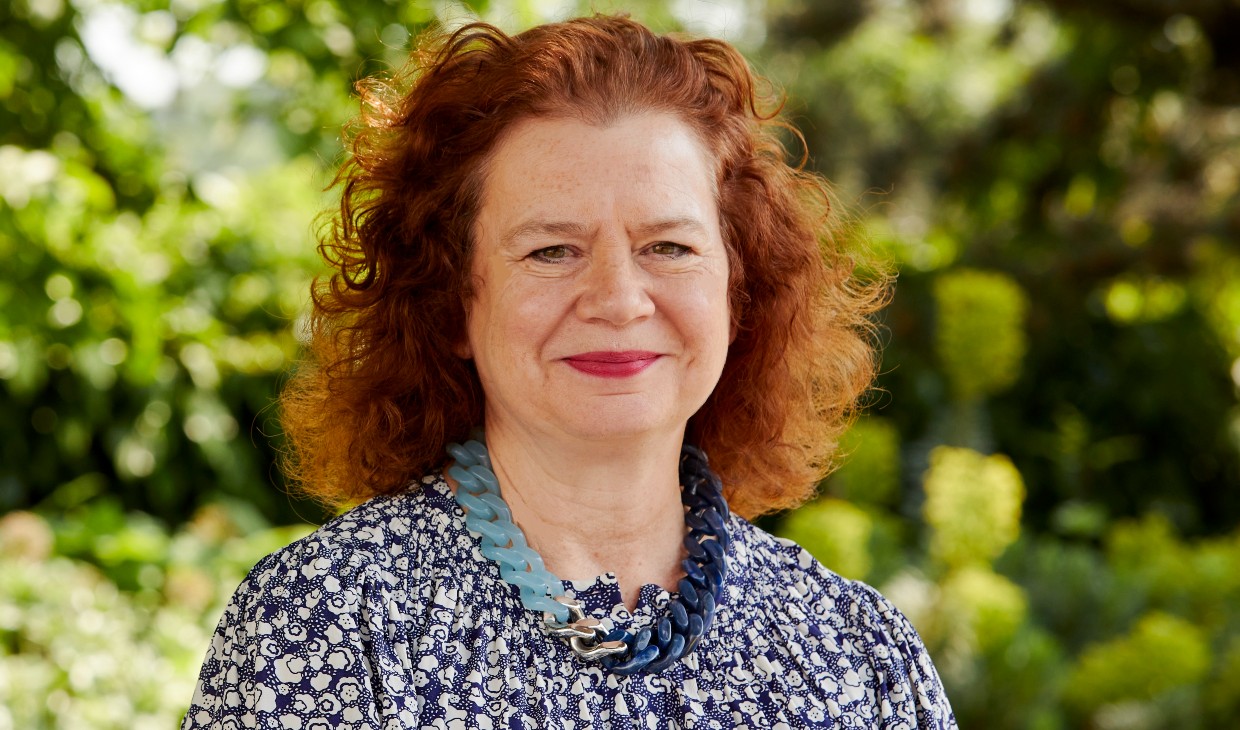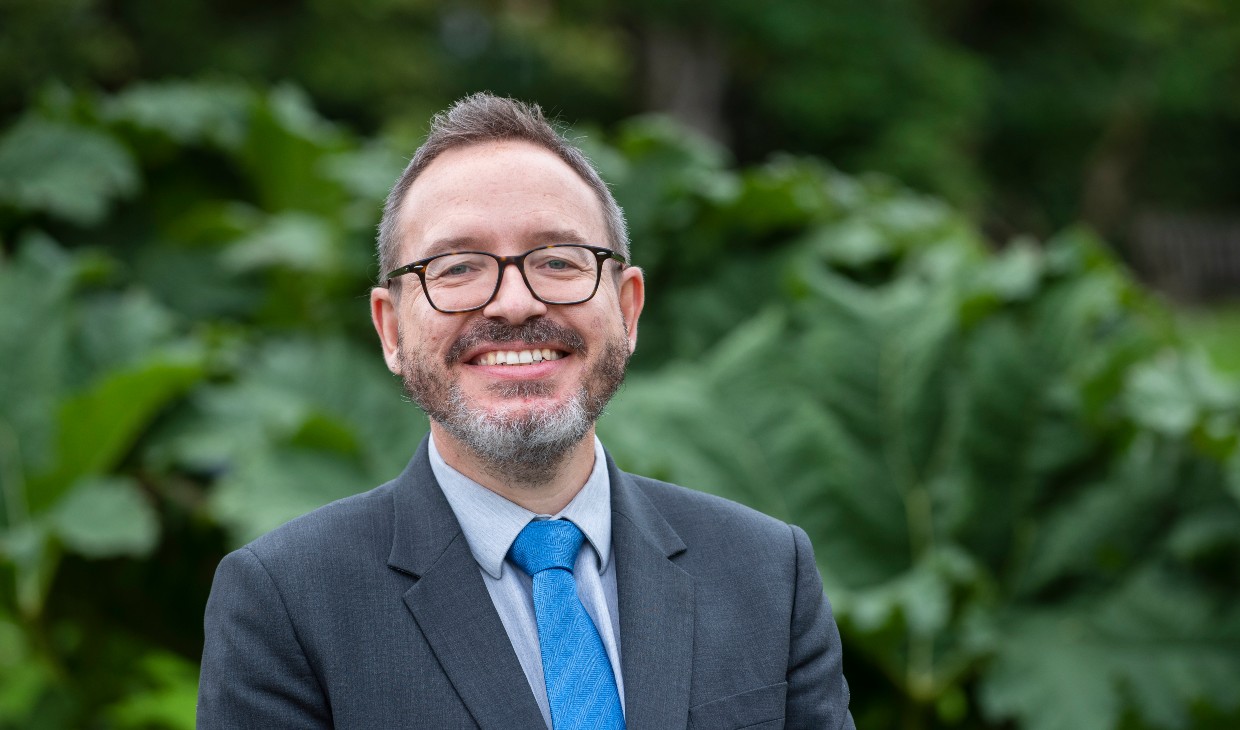University of Stirling appoints two new Deputy Principals
The University of Stirling has appointed two new Deputy Principals
/filters:format(webp)/filters:no_upscale()/prod01/cdn/media/stirling/news/news-centre/2018/08/campus-1920X689.jpg)
The University of Stirling has appointed two new Deputy Principals – eminent educationalist Professor Helen Scott and internationally renowned scientist Professor Paul A. Townsend.
Professor Townsend will take up the role of Deputy Principal Research and Innovation, replacing Professor Judith Phillips, who recently stepped down to focus on her research. Professor Scott has been appointed Deputy Principal Education, taking over from Professor Leigh Sparks, who will retire at the end of September.
Helen will join from Sheffield Hallam University, where she is Pro-Vice-Chancellor (Learning, Teaching and Student Success). Paul will join from the University of Surrey, where he is Pro-Vice-Chancellor and Executive Dean for the Faculty of Health and Medical Sciences and Executive Board Lead for International Research and Partnerships.
Helen led Sheffield Hallam’s Teaching Excellence Framework submission which resulted in a Gold award in the Teaching Excellence Framework in 2023 and has delivered significant improvements in the institution’s most recent National Student Survey (NSS) results.
Professor Scott said: “I share Stirling’s vision to cultivate creative, responsible, skilled and resilient graduates. I am passionate about ensuring education provides a path to fulfilling career opportunities, regardless of a learner’s background.
“The University of Stirling already boasts admirable student outcomes, and I am thrilled to be afforded the opportunity to lead on advancing the University’s education, teaching, and learning portfolio.”
Professor Sir Gerry McCormac, Principal and Vice-Chancellor of the University of Stirling, said: “The appointment of these two eminent professors comes at a particularly exciting time for the University of Stirling, as we implement the new Strategic Plan 2030.
“Both Professor Scott and Professor Townsend rightly command huge respect in their fields and I look forward to working closely with them to deliver our strategic priorities.
“They will be joining an outstanding senior leadership team who are committed to strengthening our position as an exceptional centre of education and research.”
Paul brings with him a wealth of research and innovation expertise and has a proven track record of securing high-value funding across research councils, charities, industry and philanthropy.
Professor Townsend said: “The University of Stirling has a global reputation for world-leading research, and I am energised to build on this while maximising the potential of innovation initiatives such as the City Region and Growth Deals.
"I look forward to working with Stirling's talented team to cultivate our next generation of researchers and strengthen industry partnerships. By nurturing Stirling-trained research and innovation leaders, we aim to significantly boost our REF29 performance, elevate the University's global standing, and increase research and entrepreneurial funding. This aspiration embodies our commitment to excellence, positioning Stirling as a hub for innovative research that addresses global challenges and creates tangible value beyond academia."
Paul will take up the role of Deputy Principal Research and Innovation on November 4. Helen will begin her tenure as Deputy Principal Education on November 11.
Professor Helen Scott

Professor Scott is Pro-Vice-Chancellor (Learning, Teaching and Student Success) at Sheffield Hallam University, with responsibility for ensuring students have an outstanding experience in all aspects of learning, teaching and assessment. During her time at Sheffield Hallam, she instigated significant enhancements in quality assurance, leading the university’s Teaching Excellence Framework submission in 2023 which secured the Gold award, and in collaboration with her academic and professional services colleagues, ensured the successful implementation of the whole-university portfolio review.
Helen’s subject background is teacher education and fine art and she was a secondary art teacher in London before embarking on a career in higher education.
She was previously Deputy Vice-Chancellor (Academic) at Arden University, where she led on the development, implementation and leadership of Arden’s first Academic Strategy, which involved creating a detailed learning and teaching plan and a new academic structure, recruiting many new academic posts at different levels, revising the full-time students’ academic calendar, and introducing many quality enhancement processes, policies and practices from scratch.
Prior to this, Helen was Dean of the Faculty of Education and Humanities at the University of Northampton and has also held leadership roles at Manchester Metropolitan University and the University of Cumbria.
Helen’s PhD and Masters degrees focused upon her work with many cohorts of students over several years, including novice teacher identity and development, art and design secondary education, habitual cultures within educational settings, visual research methods, and higher education pedagogy. Her research and scholarly work has also involved working closely with primary and secondary teachers, FE and university educators in the UK, Europe and Egypt on areas such as teacher development and digital pedagogy.
Helen was the first in her family to attend university, and she has always been acutely aware of education’s power to provide a path to fulfilling, varied experiences and career opportunities. This is what drives her commitment and determination to enable students to have these same opportunities, whatever their background, interests, subject, motivations and starting point, by working closely with students and colleagues, across institutions.
Professor Paul A. Townsend

Professor Paul A. Townsend is currently Pro-Vice-Chancellor and Executive Dean of the Faculty of Health and Medical Sciences at the University of Surrey. He is an internationally renowned scientist in the field of cell stress and survival mechanisms and has a passion for teaching and mentoring both undergraduate and postgraduate students. He brings with him a wealth of industry and enterprise experience, having served as interim Pro-Vice-Chancellor Research and Innovation at Surrey, and previously he co-founded several companies and continues to provide strategic advice to others in the sector. He is also the Executive Lead for International Research and Partnerships and was also the lead for Equality, Diversity, and Inclusion, helping create a culture of inclusivity that helped lead to Athena Swan Gold and Silver awards for Biosciences and Health Sciences at the University, respectively.
He is a University of York graduate (1993) and obtained his PhD from the Imperial Cancer Research Fund (now CRUK) in 1997. Throughout his career, he has focused on investigating cellular resilience mechanisms across various chronic conditions. For the past decade and a half, his research has centred on developing innovative technologies for identifying novel biomarkers. These efforts aim to detect early signs of disease onset and disruptions in physiological balance, contributing to advancements in predictive and preventive medicine.
Paul has undertaken research in Germany and the USA as well as the UK and became an academic independent group leader at the University of Southampton (2004-2013). He joined the University of Manchester in 2013 as the Associate Dean for Business Engagement, and Research Professor in the Manchester Cancer Research Centre aligned with the CRUK Manchester Institute.
In his previous roles, Paul played a key role in developing educational initiatives, including the establishment of a graduate-entry Medicine undergraduate programme and several Masters courses. His research is evidenced by his success in securing substantial funding and infrastructure support, totalling multiple millions of pounds. These grants are from prestigious bodies including UKRI, NHS, NIHR, and the Wolfson Foundation. Notably, Paul served as Co-Investigator on two major projects: the £12.8M MRC Stoller Biomarker Discovery Centre and the £28.5M Manchester NIHR Biomedical Research Centre, underscoring his significant contributions to large-scale, collaborative research initiatives.
Paul presents frequently at UK and international conferences as well as contributing to UKRI committees, international funding agencies in Australia, Belgium, Canada, France, Hong Kong, Ireland, and the USA and co-chairs the Clinical and Sciences Committee of the Fundação para a Ciência e a Tecnologia (FCT) in Portugal.
Paul has research strengths in drug discovery, validation, cell stress and survival mechanisms, senescence, DNA damage, and the use of AI and multiple ‘omics in cancer, bone cell and cardiac biology. Paul works with academics and industry using advanced mass spectrometry in identifying novel biomarkers and regulators of cellular homeostasis. Recently, he has explored senescence and licensed the technology he invented along with colleagues from Athens and Dundee.
